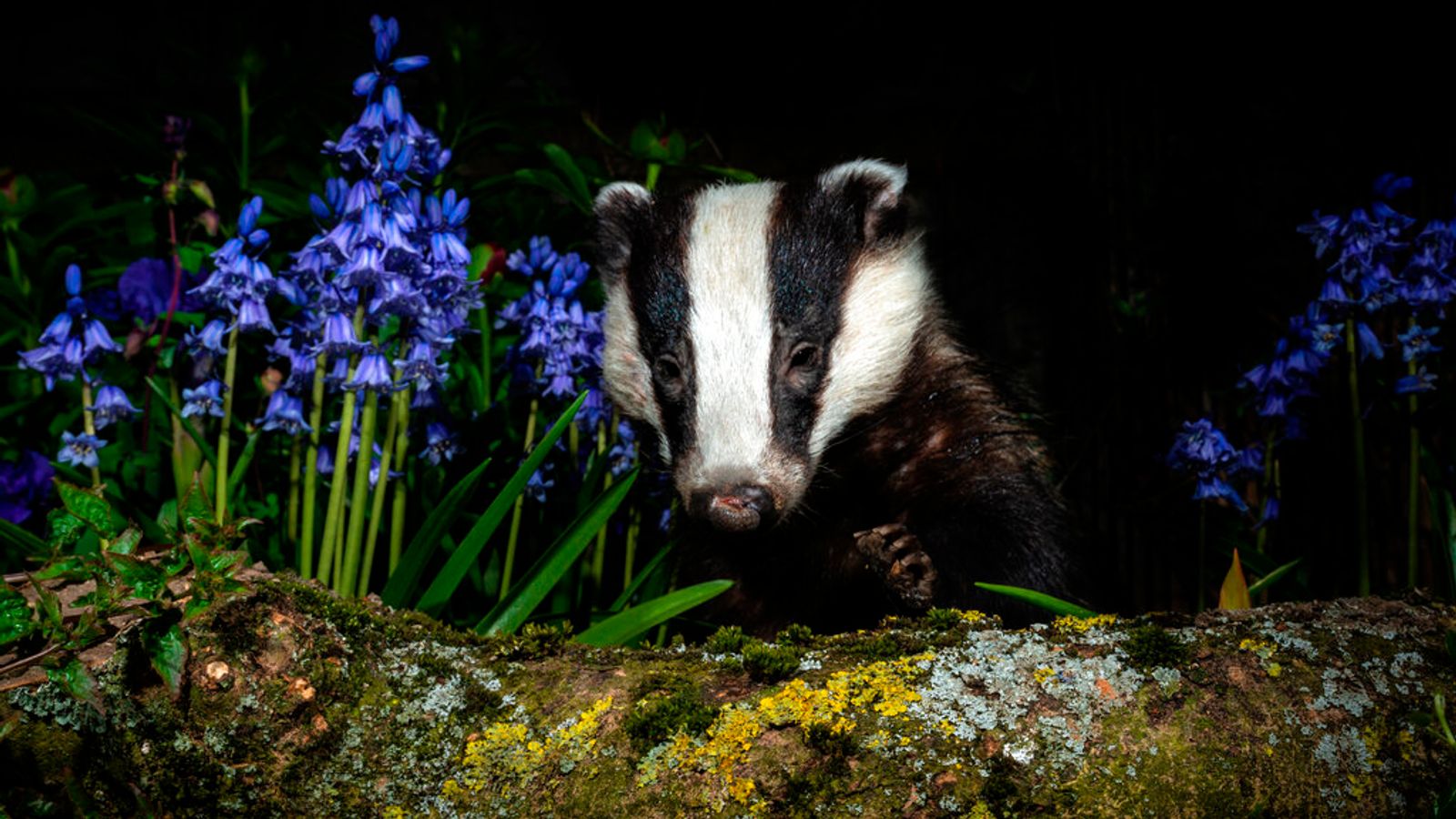Badger culling will be extended to seven new areas in England this year in a bid to tackle bovine TB in cattle.
Between 5,365 and 7,273 badgers will be killed in zones within the counties of Hampshire, Berkshire, Staffordshire, Worcestershire, Oxfordshire and two parts of Shropshire.
The announcement was made on Tuesday by Natural England, a non-departmental public body sponsored by the Department of Environment, Food and Rural Affairs (Defra).
Natural England has also authorised licence holders to resume operations in 33 existing areas this year – which will result in up to 75,930 badgers being killed.
Ministers said in May that no new licences would be issued next year.
The government plans to deploy a cattle vaccine for the disease, with trials under way in Hertfordshire for a jab and a new skin test for bovine TB.
It is hoped the vaccine will be rolled out by 2025.
The plans to reduce the badger population were revealed following an earlier pledge in March last year to gradually phase out intensive culling of badgers.
The cull of badgers – a protected species which can transmit the disease to livestock – was introduced in 2013 to curb bovine TB.
It costs taxpayers around £100 million a year and has seen more than 36,000 cattle slaughtered in the last year to stamp out the disease.
Geronimo the alpaca was destroyed at the end of August after testing positive for bovine TB, in a bid to halt the spread of the disease.
Please use Chrome browser for a more accessible video player
The animal became a household name and the subject of fierce national debate after a legal battle was launched to save its life.
Speaking in May, Environment Secretary George Eustice said bovine TB was one of the “most difficult and intractable animal health challenges” in Britain and causes “considerable trauma” for farmers.
“The badger cull has led to a significant reduction in the disease but no-one wants to continue the cull of a protected species indefinitely,” Mr Eustace said.
“That is why we are now building on this progress by accelerating other elements of our strategy, including cattle vaccination and improved testing so that we can eradicate this insidious disease and start to phase out badger culling as soon as possible.”
But the culling policy has sparked fierce opposition from animal welfare campaigners.
Dominic Dyer, of the Born Free Foundation, said more than 60,000 badgers could still be culled this year.
Mr Dyer, a friend of Afghanistan veteran and Nowzad charity founder Pen Farthing, criticised ministers’ response to the problem.
“The government has wasted an estimated £70 million of public funds shooting badgers across England from Cornwall to Cumbria but have produced no reliable evidence to show that this mass destruction of a protected species is having any impact on lowering bovine TB in cattle in or around the cull zones,” Mr Dyer said.
“It’s time to stop playing the badger blame game and focus on controlling the spread of bovine TB in cattle, which is better for farmers, taxpayers and the future of our precious wildlife.”






















